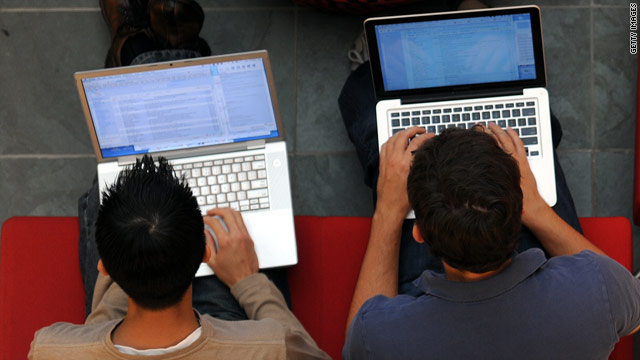
Revelations by former National Security Agency contractor Edward Snowden in June about the U.S. government’s secret surveillance activities grabbed headlines across the globe. But while the world’s attention has been focused on the United States, prompting important discussions about the legitimacy and legality of such measures, disconcerting efforts to both monitor and censor internet activity have been taking place in other parts of the world with increased frequency and sophistication.
According to a new Freedom House study Freedom on the Net 2013, which tracks internet censorship in 60 countries, internet freedom around the globe has been on decline for three years straight.
Iran, China, and Cuba were found to be the most restrictive countries when it comes to internet freedom. In Iran, the government utilized more advanced methods for filtering of online content – in effect blocking thousands of websites – while routinely imprisoning and torturing those who post dissenting views. In Cuba, the authorities continued to require a special permit for any Cuban wishing to access the global internet, with the permits typically given only to party officials and those working in approved professions. And China led the way in expanding its elaborate technological apparatus for censorship, while increasing arrests of users to deter free expression online.
Unlike in previous years, during which policy deterioration was typically seen in authoritarian countries, three democracies – India, the U.S., and Brazil – also experienced steep declines since May 2012. In India, declines resulted due to excessive blocking of websites during rioting in northeastern states and an uptick in arrests of ordinary users for posts on social media. In the U.S., the decline was in large part due to reports of extensive NSA surveillance. And in Brazil, there have been growing restrictions on online speech, particularly in the context of the country’s stringent electoral laws; cases of intermediary liability exemplified by arrest warrants against Google Brazil executives who refused to remove YouTube videos that allegedly defamed mayoral candidates; and increasing violence against bloggers.
The reality is that most countries around the world have enhanced their surveillance powers over the past year. In fact, in 35 out of 60 countries examined, the government has upgraded surveillance capabilities or passed a new law giving it greater monitoring authority since May 2012. This is of particular concern in authoritarian countries where such surveillance is used to track down and arrest human rights activists and dissidents. One such example is from Russia, where the Supreme Court last year upheld the legality of the government’s surveillance of an opposition leader on the grounds that he had participated in antigovernment rallies. And in Sudan, the authorities tracked down and arrested dissidents based on the signal emitted by their cell phones.
In addition to surveillance, an increasing number of governments are trying to control who says what online by passing new laws that criminalize various types of political, religious, or social speech. Until just recently, most countries did not have laws specifically dealing with the internet, but that has started to change. Late last month in Gambia, the government approved a new law that allows anyone who “incites dissatisfaction” with the government to be jailed for up to 15 years, while also providing for criminal penalties for political cartoons published online. And in the United Arab Emirates, a new cybercrime law stipulates life imprisonment for anyone calling for regime overthrow through online communications.
Given the proliferation of new laws and practices restricting online speech, more and more users are finding themselves behind bars for their posts. Although political activists are targeted most often, an increased number of ordinary users have found themselves in legal trouble after casually posting their opinions and jokes on social media. Over the past year in India, for example, at least eleven users were charged under the so-called IT Act for posting on sites like Facebook and Twitter. In one of the best-known cases, police arrested a woman for complaining on Facebook about widespread service disruptions in Mumbai for the funeral of a political dignitary. The woman’s friend, who liked the comment, was also arrested. In Ethiopia, a student was arrested after he posted a comment on his Facebook page that criticized rampant corruption at a local university.
The next few years will be critical for the future of the internet, particularly as more countries look to pass national legislation to regulate the internet use. For that reason, supporters of internet freedom – whether they be civic activists, technology companies, or the international community – must act swiftly to ensure that laws and practices under consideration are coined with regards to our rights to privacy, free expression and assembly. Otherwise, the internet that our grandchildren inherit might be significantly more restrictive than the network we enjoy today.